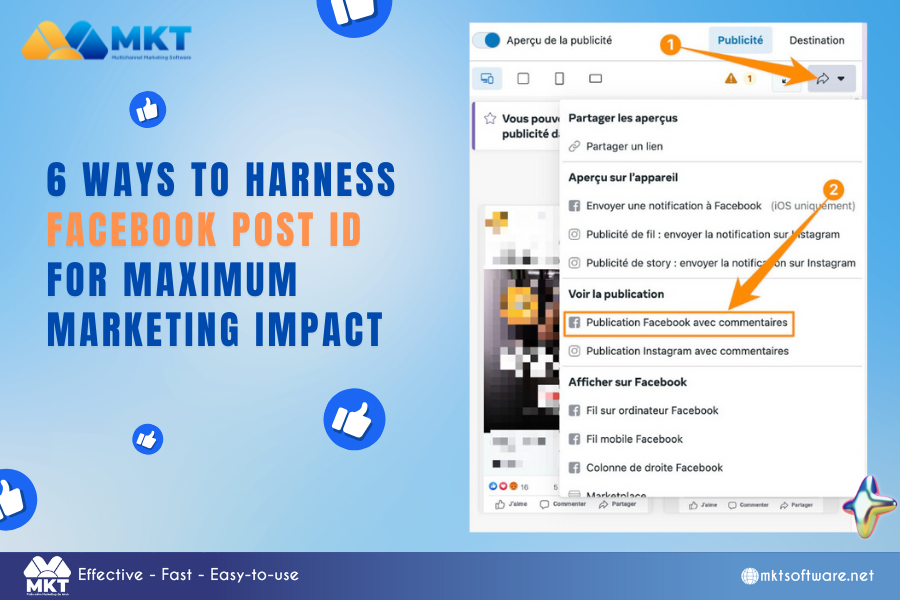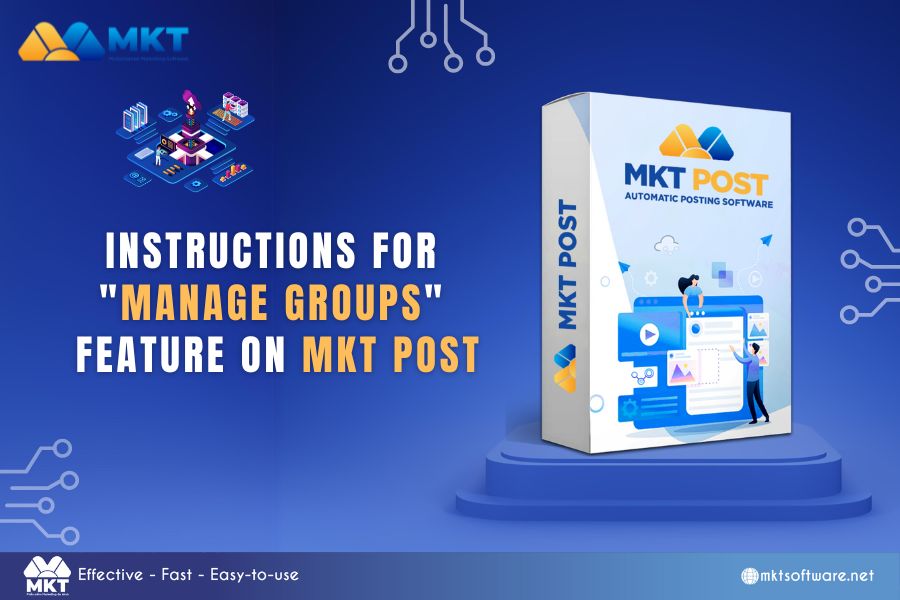Artificial Intelligence (AI) is “transforming” the e-commerce industry, making shopping more personalized, search more visual, and sales and inventory management more efficient. In this article, let’s explore with MKT Software the applications of AI in ecommerce and the potential of this technology.
Table of Contents
Toggle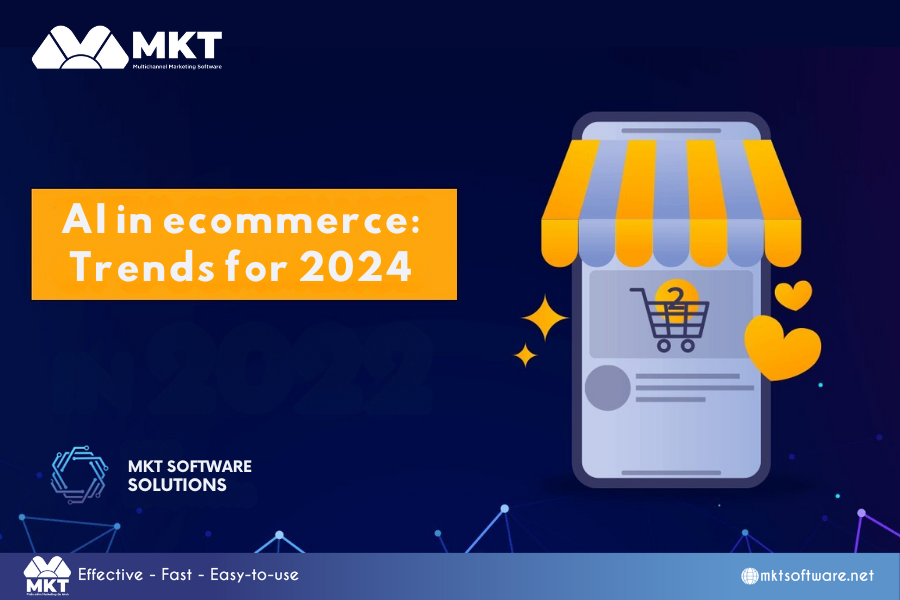
I. The ecommerce market in 2024 and beyond
The global ecommerce figure has exceeded $5 trillion this year and is expected to reach $6.5 trillion by 2024, with many countries recording double-digit growth in online retail in 2023. Most major economies in Southeast Asia have recorded over 20% growth in online retail sales.
According to a Wunderman Thomson report, more than 60% of consumers tend to increase their online retail spending. $6.5 trillion by 2024, with many countries recording double-digit growth in 2023. Most major economies in Southeast Asia have recorded over 20% growth in online retail sales. Furthermore, according to a Wunderman Thomson report, more than 60% of consumers tend to increase their online retail spending.
As technology becomes more accessible and internet penetration continues to rise, the e-commerce market is likely to continue to grow in the near future and show little signs of slowing down.
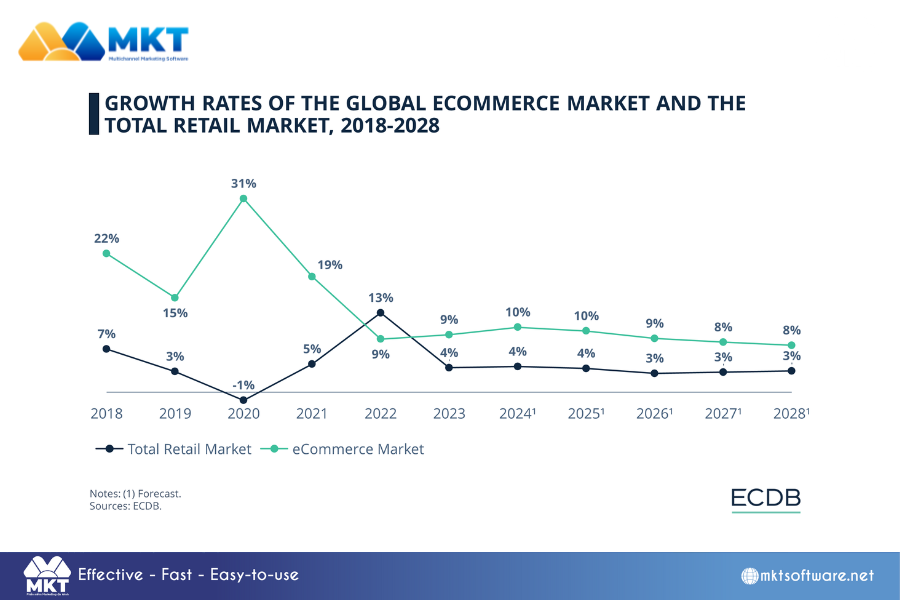
II. Typical applications of AI in ecommerce in 2024
In the context of rapidly growing e-commerce, AI is emerging as a game-changing factor, revolutionizing how businesses cater to customers and operate. E-commerce giants like Amazon, Alibaba, eBay, etc. are leveraging AI to enhance their competitive edge and drive their success.
1. AI will be a powerful personalization tool
Customers expect personalized experiences and customized recommendations are a key factor that customers consider when shopping online today. Personalized recommendations and suggestions can increase engagement, conversion, and sales. In fact, according to data from HubSpot, personalized emails are 6 times more effective at generating revenue than non-personalized emails.
To meet these needs, e-commerce brands are leveraging artificial intelligence (AI) technology that can learn about customer preferences over time to provide content tailored to their individual needs or interests. This allows you to prioritize purchases based on consumer behavior rather than just guessing what people want.

2. Reducing barriers in the buying journey
Purchasing barriers, the customer conversion process can be caused by various factors, including payment methods, shipping and delivery, returns, etc.
Did you know that the checkout process on many sites takes an average of 1.5 minutes to complete, while the checkout process on a single page takes only 53 seconds? In the e-commerce world, half a minute can be the difference between a conversation and an abandoned shopping cart.
While user experience is not the only barrier to conversion, research shows that around 70% of online shoppers abandon their carts if they encounter issues during the checkout process, such as being forced to create an account or having to go through too many steps to place an order. Brands that carefully consider how customers prefer to shop and where they might feel overwhelmed will have the opportunity to earn higher returns from their advertising spending.
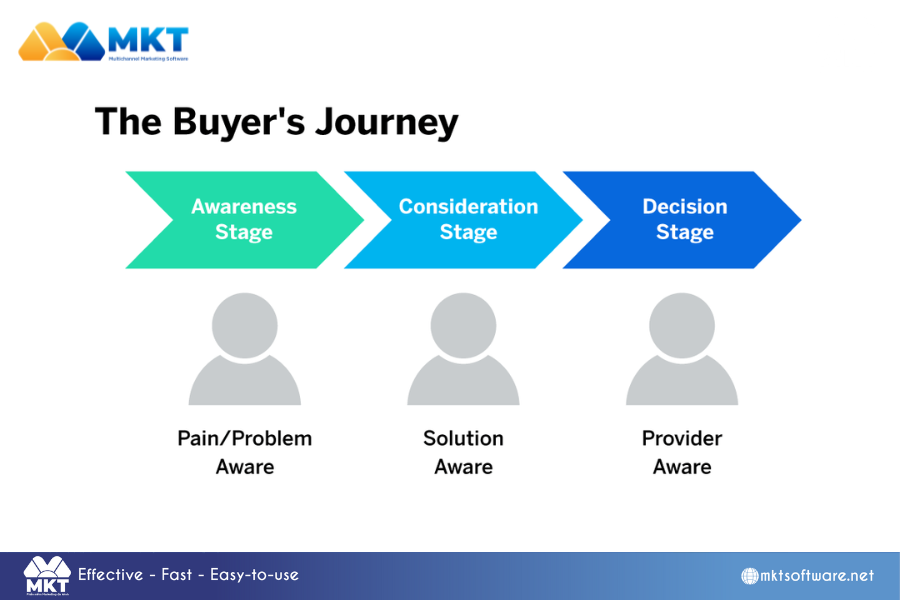
In 2024, people will be more aware and the competition will be even more fierce, forcing online sellers to reduce points of friction throughout the consumer journey.
3. AI chatbots interacting with customers
AI chatbots in e-commerce have become an essential part, playing a crucial role in improving customer interaction and satisfaction. AI-powered bots are capable of interacting with customers, answering their queries, making product recommendations, and providing 24/7 support, all of which help enhance the customer’s shopping experience.
Implementing AI Chatbots brings various benefits:
- Chatbots can handle a large volume of customer requests without any human intervention, reducing response times and providing instant support.
- These Chatbots are designed to learn and improve over time through machine learning, to provide more accurate responses and better service as they interact with more customers.

Essentially, AI chatbots in e-commerce contribute to providing a more reasonable, responsive, and personalized shopping experience, benefiting both customers and retailers.
4. AI-powered personalized packaging will become more prevalent
Personalized packaging will become more common for several reasons, including:
- It helps differentiate your product from competitors.
- It can be beneficial for marketing and branding.
- It creates a positive experience for customers.
Personalized packaging can also be used to share targeted contact information around special events, holiday discounts, and other important brand milestones throughout the year. From an operational standpoint, AI is also used to assist with shipping and delivery by making products easier to pack into boxes or bags. In general, most shipping providers offer standard packaging sizes, and ensuring that many of your boxes fit these standard sizes can also help you save on shipping costs.

5. Expanding sales network is the key to success
While focusing on your own website as the dominant sales channel is very appealing, the reality is that many products will sell better elsewhere. Your best approach is to set up stores on marketplaces like Amazon, Lazada, and Shopee, as well as social channels like Facebook and Instagram Shops, so you can reach more customers and generate additional revenue from your sales.
As online shopping becomes more prevalent, consumers may have higher expectations for convenience and variety. By selling on multiple marketplaces, sellers can offer more product selection and make it easier for customers to find and purchase the items they want. Furthermore, by selling on multiple marketplaces, sellers can adapt to changes in consumer behavior and continue to reach and engage with customers.

Notably, a Bazaarvoice study found that 76% of consumers visit multiple marketplaces before making a purchasing decision.
6. AI-supported inventory management
Typically, AI applications address the direct aspects of an e-commerce business, but they can also powerfully forecast and control inventory through the use of AI. For example, an AI-powered demand forecasting tool can help make precise decisions on how much of a certain product to stock, when to expect spikes in demand, and when to optimize inventory levels.
Today, nearly 84% of e-commerce businesses are actively trying to integrate AI into their online sales operations. However, not many think about how AI can increase their business efficiency and how to use it to further improve the customer experience.
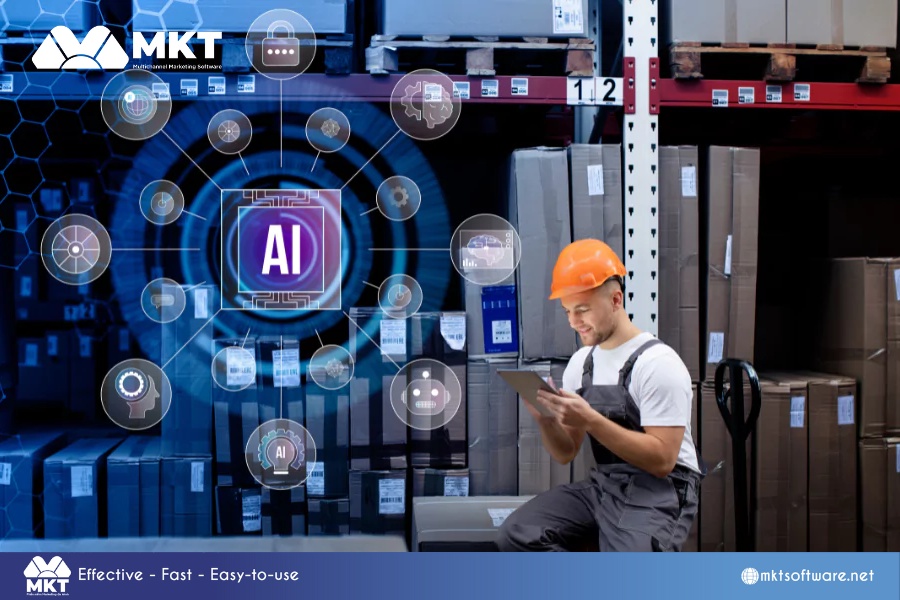
7. Continually updating new technologies
In today’s rapidly evolving digital age, online businesses are constantly striving to continuously update new technologies to support and optimize their business operations. In the e-commerce field, in addition to tools that support the process of creating, storing, and distributing products, the creation and refinement of product content for e-commerce websites is also essential.
This article will introduce one of the new content production technology solutions that is being widely trusted and used by many businesses. That is the Content AI software developed and operated by MKT Software. Content AI software has outstanding features that support businesses to accelerate and optimize e-commerce content production activities such as:
- Product Review Writing: Create compelling product reviews that draw attention to important features, advantages and disadvantages, and user experiences. This will help you attract customers and increase sales.
- Amazon’s Product Description: Write compelling product descriptions for Amazon to push your listings to the top of search results.
- Benefits of the Product: Make use of AI-powered tools to thoroughly describe the benefits and use cases of your product.
- Top-Selling Product Titles: Find the ideal names for your products to help them stand out from others in the market.
- Product comparison: Provide customers with an overview of the differences between two products via in-depth comparisons between them.
- Product Characteristics: Point out all of the characteristics and features that attract customers to your product.
- Features of Amazon Products: Content AI assists you in determining and showcasing the most attractive features and benefits of your product, making it an alluring offer to consumers.
- Welcome Emails: When customers use your products/services or interact with your brand, send them a welcome email.
- Outreach Emails: Make professional outreach emails with AI’s assistance.
- Product Information Emails: With just a few clicks, you can create professional product information emails that will highlight your current services and encourage customers to buy.
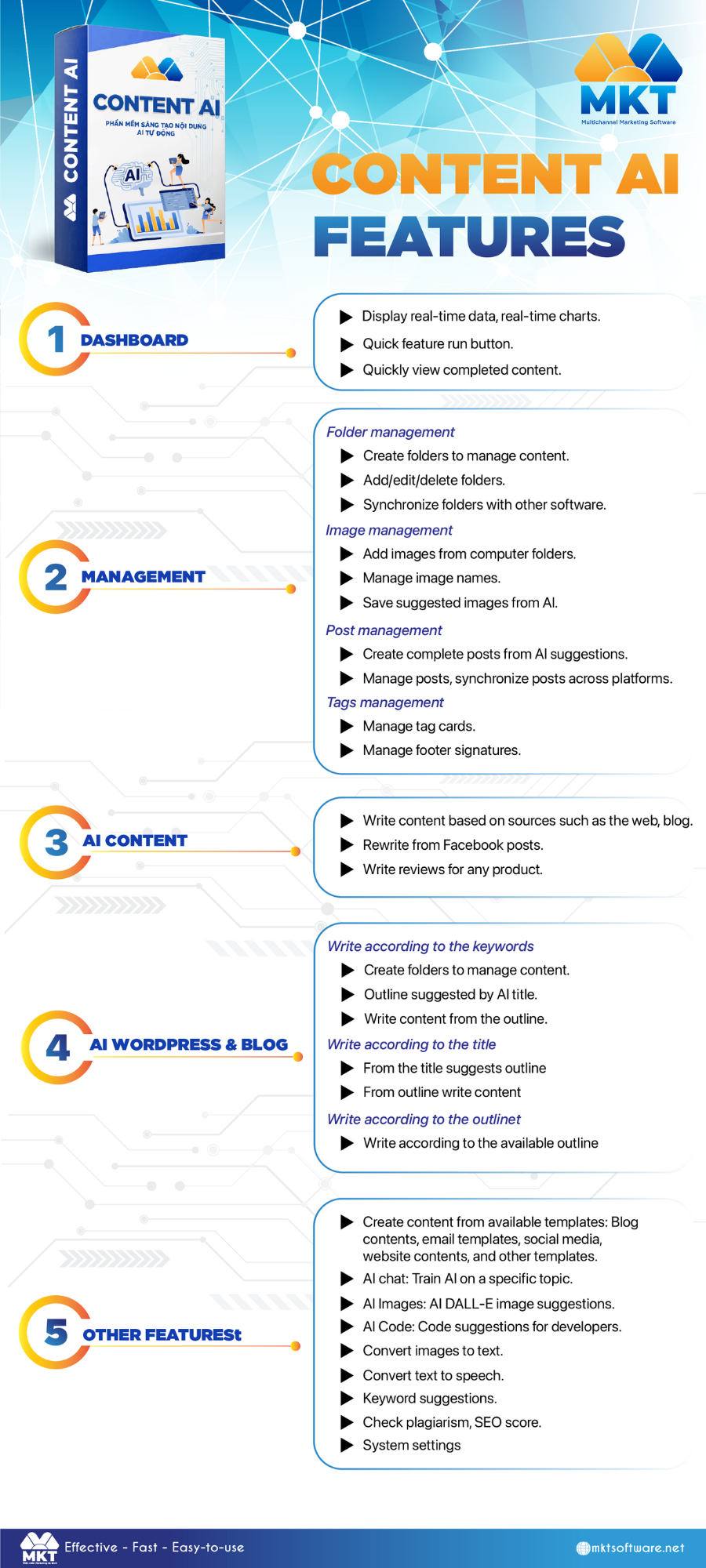
III. Conclusion
Although there are still many challenges to overcome in applying AI in e-commerce, we cannot deny the benefits that this technology brings to the field in terms of increased efficiency, increased accuracy, and the ability to reduce costs.













